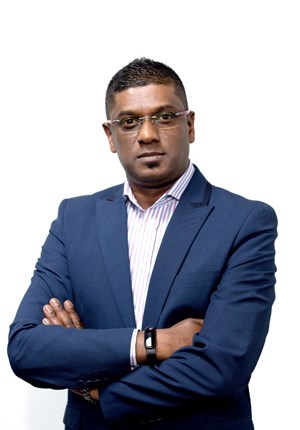
Kenneth Marion, Chief Operating Officer - Bonitas Medical Fund
What’s not newly exposed though, is corruption in the healthcare industry. Kenneth Marion, Chief Operating Officer of Bonitas Medical Fund says, ‘In 2018, we had three criminal convictions of healthcare practitioners for fraud and contravention of Section 66 of the Medical Schemes Act. The convicted practitioners were a Clinical Psychologist, Audiologist and a General Practitioner. Sentences for the cases ranged from 3 to 5 years imprisonment, suspended for 5 years. The Court ordered them to pay back the quantified amount, correctional supervision and community service.’
For the same period, Bonitas obtained convictions with The Health Professional Council of South Africa (HPCSA), where two healthcare practitioners were struck off the register based on the reported cases of fraud. The practitioners are a Clinical Psychologist and a Registered Counsellor.
About R10 billion is lost to FWA in the healthcare industry annually – which amounts to about 15% of claims being fraudulent. Marion says, ‘This amounts to around R190 million for the Scheme. This is outright theft against our members. This money could be used to add value and increase benefits to them’.
Marion outlines the trends in Waste and Abuse:
- Lack of Practice number vetting
Practitioners under investigation apply for multiple practice numbers in order to circumvent sanctions. The Board of Healthcare Funders (BHF) is aware of the concern the Fund and the industry has around multiple practice numbers. To crack down on this fraudulent activity, the Fund introduced a vetting process in co-operation with the administrator to screen all new practice numbers.
Practitioners reported to HPCSA for fraudulent behaviour, are not being sanctioned sufficiently to be a realistic deterrent. Engagement with HPCSA by the Fund is ongoing with the hope of highlighting the effects of fraud not only to Bonitas but the healthcare industry.
- Pharmacy Council sanctioning
The Council is reluctant to take action against fraudulent pharmacies unless a criminal conviction has been obtained. This poses a risk as the legal process can be lengthy before a case is finalised.
We have identified a trend where emergency services vehicles are used for general transport and claims are submitted as though members had an emergency.
We see mark-ups of up to 300% being added to poor quality devices that are supplied by the treating practitioners.
Heatlhcare practitioners submit falsified invoices for the devices they allege to have dispensed to members.
‘Runners ‘supplying member details to various healthcare practitioners, who in turn, submit claims for services allegedly rendered with or without the members knowledge. A runner in this context is someone who the healthcare practitioner is working with to tout more people in joining the illegal activity. One runner has just been dismissed by his employer as a result of his part in defrauding the Fund. His criminal case was withdrawn by the state after the doctor he colluded with admitted guilt.
- Rehabilitation centres/Wellness centres
An example of this is when members are admitted and other service providers consult with them without the knowledge of the treating doctor.
The good news
Marion says the Fund have observed a decrease in quantified amounts of fraud, waste and abuse for quarter four of 2018. ‘The decrease can be attributed to the analytical tool that identifies the outliers as well as sanctions that are applied by the Fund against healthcare practitioners that are involved in irregular claiming patterns.’
The impact of FWA
‘The repercussions of fraud are widespread but it has a direct impact on every member of the Fund,’ says Marion. ‘Medical schemes are not for profit and are in fact owned by their members. So when the Scheme is defrauded, it impacts funds to pay for claims and can contribute towards increased premiums. Last year we recovered R31.2 million.’
What is Medical Aid Fraud?
According to Section 66 of the Medical Schemes Act, medical aid fraud, committed either by a member or a healthcare practitioner, is a criminal offence which carries a fine, imprisonment or both.
Being vigilant
‘Our most invaluable tool against FWA remains our members,’ says Marion. ‘To assist them to be proactive in joining us in the fight, we have a toll-free fraud hotline (0800 112 811) to report any incidents of suspected fraud, waste and abuse and encourage them to use it.
‘In our experience, the biggest single deterrent is making it known that we are actively investigating every suspicious or unusual claim or activity and to also report convictions. Education goes along way in curbing the abuse of medical aid benefits in terms of the relationships between medical aids, healthcare providers and members.’
